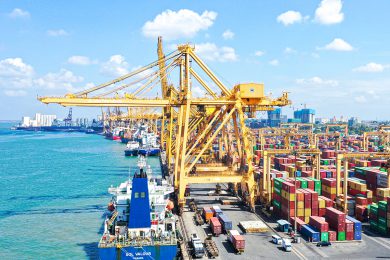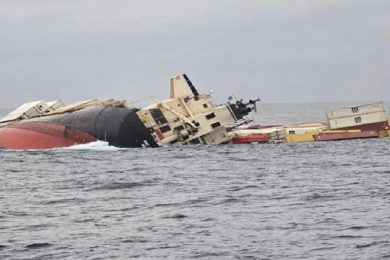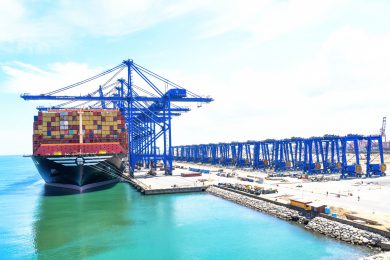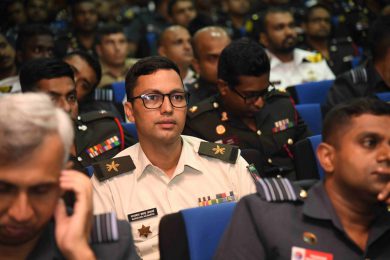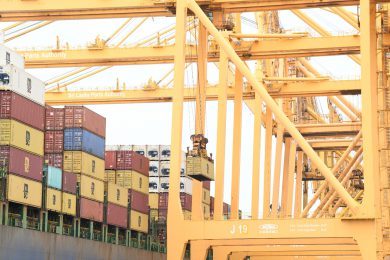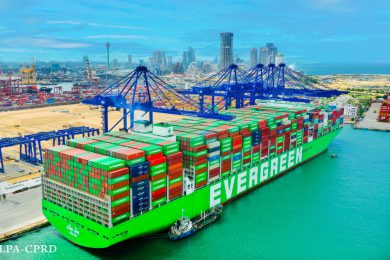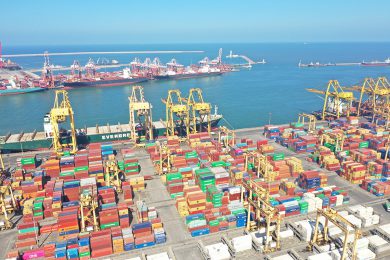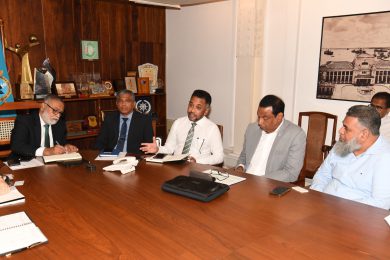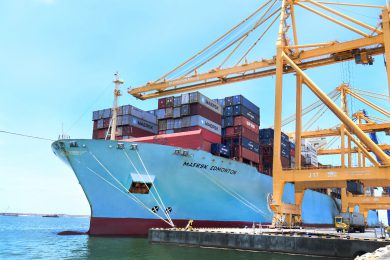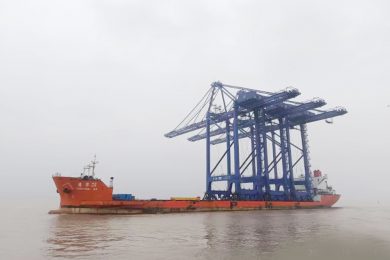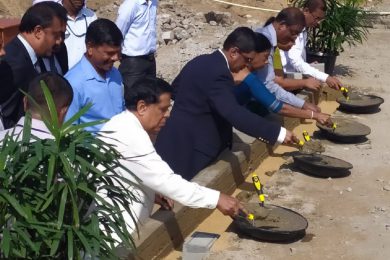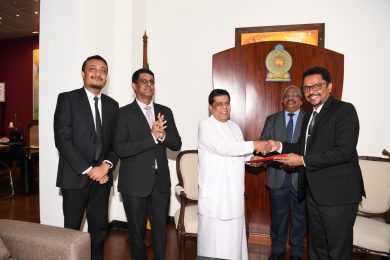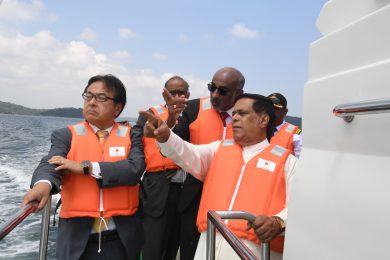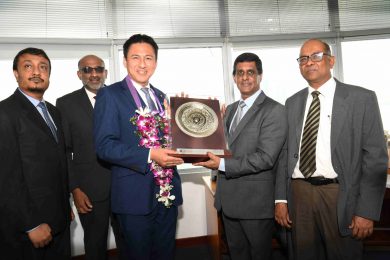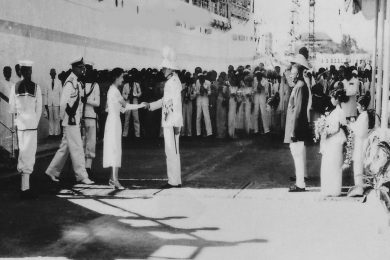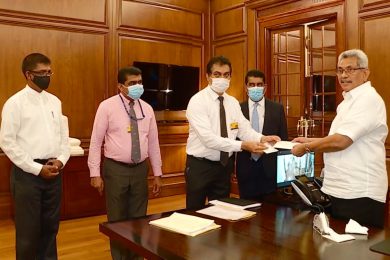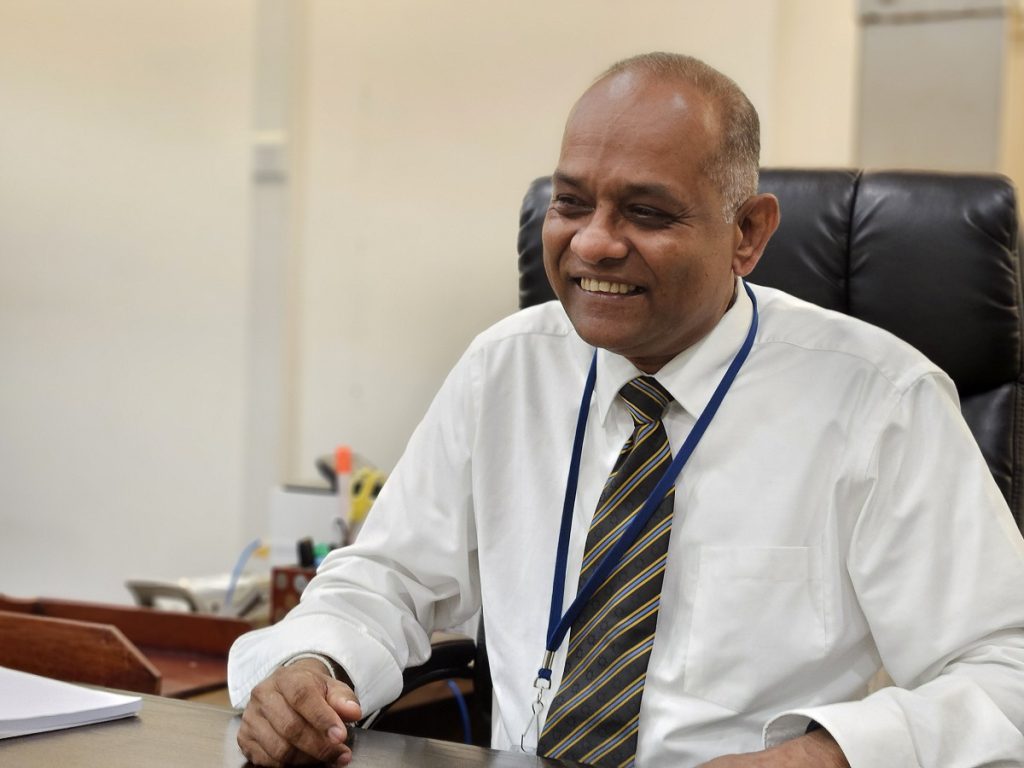In this insightful article, we delve into the remarkable journey and invaluable insights of Engineer Susantha Abeysiriwardana, the Managing Director of the Sri Lanka Ports Authority (SLPA), who will soon be retiring. With over 30 years of experience, Engineer Abeysiriwardana reflects on the transformation and potentials of the SLPA, emphasizing the role of local expertise and the need for further development in logistics sectors. As he bids farewell, his parting thoughts highlight the importance of collaboration between the public and private sectors for continued success in the industry.
~
Ports are the gateways to trade and economic prosperity, serving as vital links in the global supply chain. The development of ports and maritime infrastructure is essential for enhancing a country’s trade competitiveness and facilitating economic growth.
After more than 30 years of dedicated service at the Sri Lanka Ports Authority (SLPA), Engineer Susantha Abeysiriwardana recently bid farewell to his illustrious career. In an exclusive interview conducted just before his retirement, we had the opportunity to sit down with him and gain valuable insights into his remarkable journey within the ports sector. Known as the ‘heart of the nation,’ SLPA is widely recognized as the best public institute in Sri Lanka. Mr Abeysiriwardana sheds light on the institution’s potential and his experiences in driving its growth.
Reflecting on his university years at the University of Moratuwa, Mr Abeysiriwardana recalls a time filled with turbulence due to social upheavals, resulting in frequent university closures and postponed exams. Nevertheless, he emphasizes the resilience and dedication of the youth, particularly those pursuing higher education, who understood the importance of continuing their studies under any circumstances. It was during this period that he completed his bachelor’s degree in Engineering, laying the foundation for his future career.
Mr. Abeysiriwardana, having briefly worked in the private sector, joined the SLPA in 1991 as a civil engineer. At that time, the Port of Colombo’s annual container throughput was just 1 million TEUs, and SLPA had only completed Phase 1 and 2 of Jaya Container Terminal. However, with his involvement, the Port of Colombo now handles over 7.5 million TEUs annually. Throughout his tenure, Mr. Abeysiriwardana personally witnessed the port’s remarkable transformation across multiple facets, including advancements in technology, infrastructure, and connectivity. He takes great pride in the significant developments he contributed to, playing a pivotal role in the flourishing container operations.
Throughout his tenure, Mr. Abeysiriwardana personally witnessed the port’s remarkable transformation across multiple facets, including advancements in technology, infrastructure, and connectivity
Mr Abeysiriwardana’s involvement in numerous port development projects further solidified the Port of Colombo’s position as a regional hub. He shares his contributions to projects such as JCT 3 and JCT 4 developments, Port Access Road, Hambantota Port, Colombo South Port Development, East Container Terminal (ECT) Phase One, Colombo International Container Terminal, and Colombo Port City. These projects have been instrumental in enhancing the port’s capacity, efficiency, and global competitiveness.
A notable aspect highlighted by Mr Abeysiriwardana is the fact that recent projects, including Phase 5 of JCT and Phase 2 of ECT, were spearheaded by Sri Lankan engineers. He expresses his belief in the exceptionally well-formulated Sri Lankan education system, particularly in the field of Engineering. According to him, the nation produces engineers with superior practical knowledge, surpassing many other countries. This accomplishment underscores the country’s ability to rely on its own talent and expertise to drive major infrastructural developments.
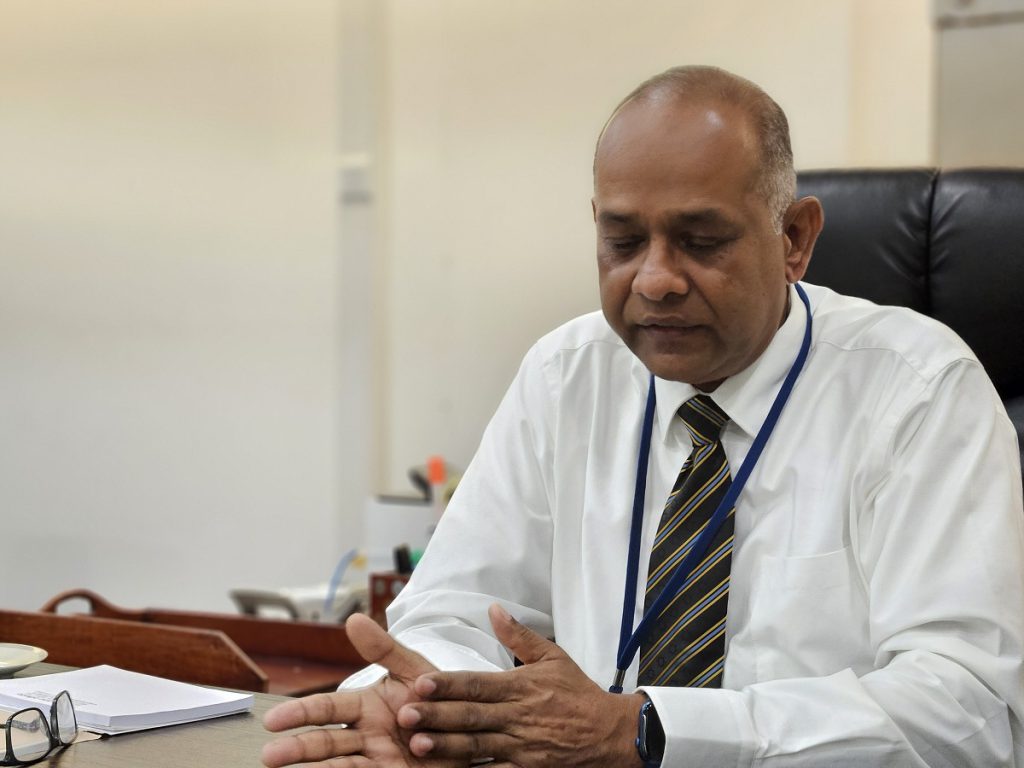
While discussing the development projects in the Port of Colombo, Mr Abeysiriwardana emphasizes his active participation in the ongoing construction of the Colombo West International Terminal (CWIT). Furthermore, he reveals his involvement in initiating a comprehensive 30-year development plan for the Port of Colombo, including the ambitious north port development. These strategic initiatives demonstrate his continued dedication to ensuring the port’s sustained growth and significance on both regional and international fronts.
Meanwhile, as Mr Abeysiriwardana reflects on his tenure, he acknowledges the tremendous improvements witnessed in the Port of Colombo. However, he also recognizes the challenges faced and the potential for further growth in the maritime industry. Comparing Sri Lanka to other countries, he notes that many nations have developed their port facilities and enhanced logistics by carefully analyzing market dynamics and understanding the complexities of the global supply chain.
The integration between the public and private sectors is not just important for staying competitive in the business; it is essential for the existence and growth of the port industry as a whole.
In the case of Sri Lanka, there were some delays and stagnations that hindered progress. Nevertheless, national institutions, including the Sri Lanka Ports Authority, made concerted efforts to catch up with market trends. One approach was expanding business through Public-Private Partnerships (PPP), which proved to be beneficial in driving growth and innovation.
However, Mr Abeysiriwardana points out a significant area of improvement that requires attention—logistics sectors. While Sri Lanka’s focus has primarily been on container operations, many other countries have successfully reengineered their logistics facilities through steady national policies. he emphasizes the need for Sri Lanka to expand and improve its logistics areas to meet market demands and elevate its reputation in the global supply chain.
Recognizing the magnitude of the task, he emphasizes that these necessary developments cannot be achieved by Sri Lanka alone. It is crucial to attract both local and foreign partners to collaborate in these endeavours. The integration between the public and private sectors is not just important for staying competitive in the business; it is essential for the existence and growth of the port industry as a whole.
To illustrate the significance of such collaboration, he highlights the success stories of the South Asia Gateway Terminals (SAGT) and the Colombo International Container Terminal (CICT). These partnerships between the public and private sectors have demonstrated their effectiveness in driving innovation, improving operations, and enhancing the overall competitiveness of the Port of Colombo.
After decades of dedicated service, Engineer Susantha Abeysiriwardana leaves behind a wealth of memories. As he prepares to embark on a new chapter in his life, he takes a moment to offer some thoughts for those who will carry the Sri Lanka Ports Authority (SLPA) into the future.
“Our future is bright, and while challenges may arise, I am confident that, as we have done in the past, we will overcome them together, gradually,” Mr Abeysiriwardana expresses with optimism. He emphasizes that overcoming challenges is a collective effort that requires unity and collaboration.
Our future is bright, and while challenges may arise, I am confident that, as we have done in the past, we will overcome them together, gradually.
In a world that is constantly changing, Mr Abeysiriwardana urges the importance of focusing on the true meaning of a sustainable environment. He believes that sustainability holds a deep significance, akin to the concept of enlightenment or Nirwana. It is about understanding the interconnectivity between every living being and striving to improve the quality of life for all.
As our hour-long discussion comes to a close, Mr Abeysiriwardana concludes with these heartfelt words. In the face of an ever-evolving world, Engineer Susantha Abeysiriwardana’s unwavering belief in the collective effort, sustainability, and the interconnectedness of all beings serves as a beacon of inspiration. His contributions and legacy will undoubtedly resonate within the Sri Lanka Ports Authority and continue to shape the bright future that lies ahead.
Engineer Susantha Abeysiriwardana’s valuable insights shed light on the challenges and opportunities within the Sri Lankan port sector. Despite the remarkable growth and transformation witnessed by the Port of Colombo, he emphasizes the importance of continued development, especially in the logistics sector. He emphasizes the need to embrace expansion, attract both local and foreign partners, and foster strong collaboration between the public and private sectors. By doing so, Sri Lanka can position itself as a prominent player in the global supply chain, ensuring sustained growth and success in its port industry. His reflections provide a compelling vision for the future of Sri Lanka’s ports.
Marketing and Business Development Division, Sri Lanka Ports Authority



